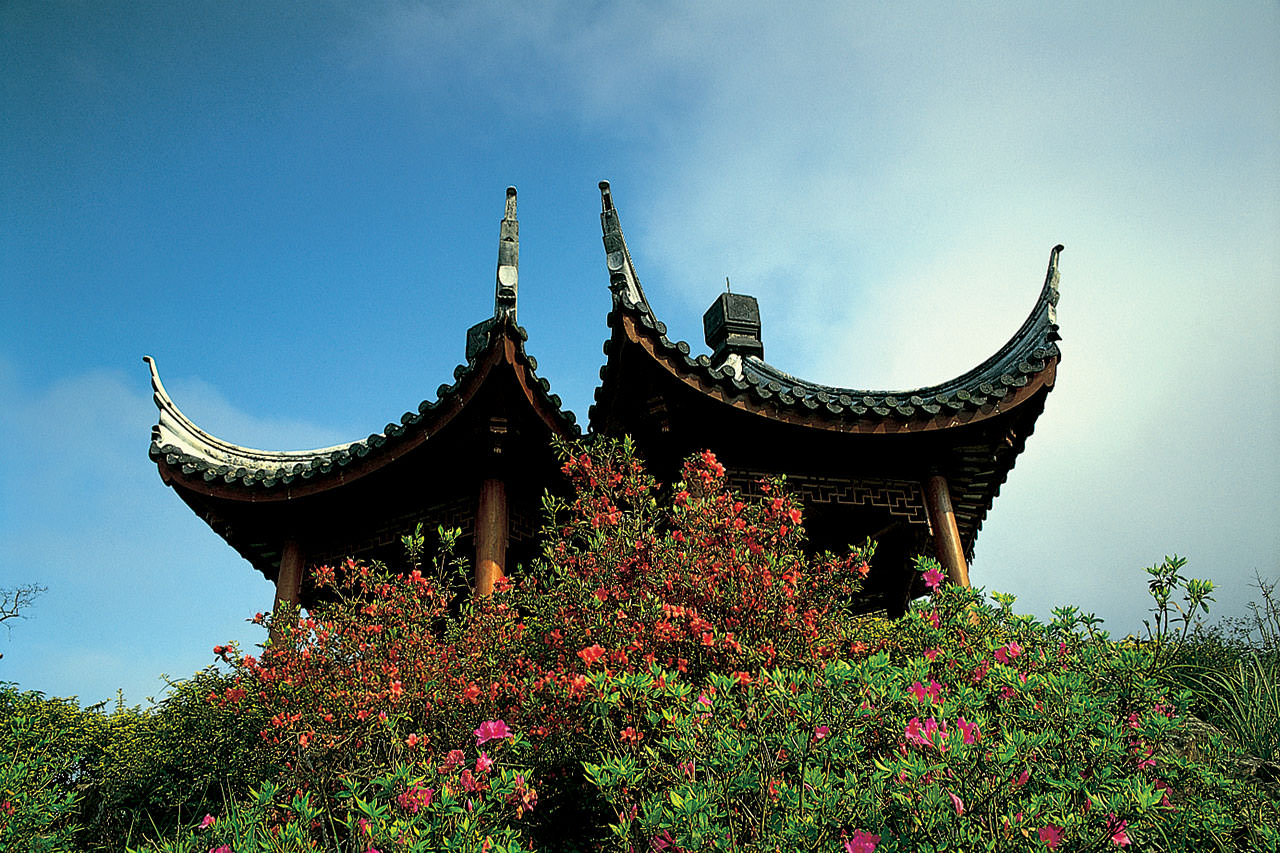Kadoorie Farm and Botanic Garden (KFBG) raises awareness, undertakes rigorous science-based species conservation and ecosystem restoration, and offers new ways of thinking and low-carbon living to respond to the world’s environmental problems, all while being linked to the resources and lifestyle of Hong Kong. Our work brings hope and improvement, by focusing on nature conservation, sustainable living and holistic education that reconnect people with nature. By working together with the public, government, academia, NGOs and businesses, we help to protect our common future.
KFBG is situated in the rural New Territories on the northern slopes of Tai Mo Shan, Hong Kong’s highest mountain, where two steep spurs enclose its deep-set valley. Within KFBG, there are streams, woodlands, orchards, vegetable gardens, walking trails, separate exhibits focusing on live animals, flora and art, sustainable agriculture demonstration plots, a wild animal rescue centre, a native tree nursery, conservation and education facilities, and magical, misty fern gardens. A special department at KFBG is the Green Hub, which is located in the renovated Old Tai Po Police Station – a Grade 1 listed historic building dating back to 1899 – where we run community programmes to demonstrate how we can live sustainably, while at the same time respecting nature and each other. In addition, in April 2024, we opened the Kadoorie Centre - Food Hub, for residential retreats and innovative cooking.

In the post-war years, Hong Kong was flooded with immigrants, with many having traditional knowledge of crop production and livestock farming but without stock; others had land but no experience. In short, they required support to rebuild their lives. In 1951, in response to these pressing human needs, Lawrence and Horace Kadoorie established the Kadoorie Agricultural Aid Association (KAAA), which became a key partner of the Hong Kong government in devising and implementing a plan to help Hong Kong feed itself. The Kadoorie brothers, part of a well-established business family, saw wealth as a sacred trust to benefit others. Through such aid, thousands of people received agricultural training: thousands of pigs, chickens and ducks were bred and given to farmers or sold to them on credit as micro-loans and numerous wells, irrigation channels, roads, footpaths, bridges, pigsties and farmhouses were built.
As Hong Kong’s economy grew and times changed, KFBG’s purpose also adapted. On 20 January 1995, the Legislative Council of Hong Kong passed an Ordinance (KFBG Chapter 1156) incorporating KFBG as a non-profit corporation and designated as a conservation and education centre with a new mission.
KFBG’s three core programmes, focused on nature conservation, holistic education and sustainable living, are constantly evolving as they strive to harmonise humanity’s relationship with nature. In addition to the many on-site courses, workshops and special events we run, we implement projects throughout Hong Kong, Greater Bay Area and other parts of the Indo-Burma region to better protect and restore biodiversity.

